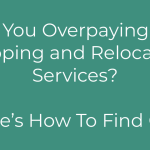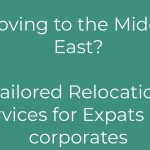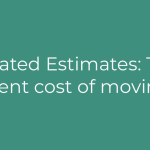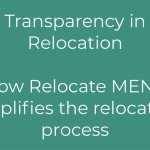Are you considering a move to the United Arab Emirates (UAE)? Whether you’re relocating for work, lifestyle, or other reasons, the UAE is an attractive destination with its thriving economy, cultural diversity, and modern infrastructure. However, like any international move, it comes with its own set of challenges and nuances. In this comprehensive guide, we’ll explore the key factors you should know before making the UAE your new home.
Visa and Immigration
One of the most crucial aspects of moving to the UAE is understanding the visa and immigration requirements. This is often the first step in your relocation process.
Employment Visas
Before moving, secure a job in the UAE or have a job offer in hand. Most expats enter the UAE on employment visas sponsored by their employers. The employer typically handles the visa application process, but it’s essential to understand the specific requirements and documentation involved.
Residency Visas
After arriving in the UAE, you’ll need to obtain a residency visa. This is crucial for opening a bank account, signing a rental agreement, and accessing healthcare services. The process typically involves a medical examination and obtaining a no-objection certificate (NOC) from your employer.
Family Sponsorship
If you plan to relocate with your family, you can sponsor their visas. The criteria for family sponsorship vary depending on your income and job title. Ensure you meet the requirements and gather the necessary documents.
Accommodation
Finding suitable housing in the UAE can be a significant task, and it’s essential to understand your options and budget constraints.
Types of Housing
Apartments: High-rise apartment buildings are common in cities like Dubai and Abu Dhabi. They offer various sizes and amenities.
Villas: For larger families or those seeking more space, villas are available in different styles and sizes.
Shared Accommodation: Many expats choose shared accommodation to reduce costs.
Rental Costs
Rental prices can vary widely depending on the location and type of housing. Be prepared for substantial rental deposits, usually around 5-10% of the annual rent.
Location Matters
Consider your workplace, children’s schools, and proximity to essential services when choosing your accommodation. Traffic congestion can be significant in some areas, so plan accordingly.
Education
If you have school-age children, researching educational options is vital. The UAE offers a range of international schools, each with its own curriculum.
International Schools
International schools in the UAE cater to various nationalities and offer a diverse range of curricula, including British, American, Indian, and IB (International Baccalaureate).
Admission Procedures
Start the school admission process well in advance. Some schools have waiting lists, and admission requirements may include academic transcripts, assessments, and interviews.
Tuition Fees
International school tuition fees can be high. Check if your employer offers education allowances or subsidies.
Healthcare
Access to quality healthcare is a priority for expats. The UAE has a well-developed healthcare system with both public and private options.
Health Insurance
Most employers provide health insurance for their employees and their families. Ensure you understand the coverage and network of hospitals and clinics.
Public vs. Private Healthcare
Public healthcare is generally of good quality, but private healthcare facilities offer more comprehensive services and shorter waiting times.
Emergency Services
Know the location of the nearest hospitals and emergency facilities. The emergency number in the UAE is 999.
Cultural Considerations
Understanding and respecting the local culture is essential when moving to the UAE.
Dress Code
The UAE has a conservative dress code in public places. Women should cover their shoulders and knees, and men should avoid wearing shorts in public areas.
Ramadan
Ramadan is a significant cultural event. During this month, eating, drinking, and smoking in public places during daylight hours are prohibited.
Friday as the Holy Day
Friday is the holy day in Islam, and most businesses have reduced working hours or are closed.
Cost of Living
The cost of living in the UAE can be relatively high, but it varies from emirate to emirate.
Housing Costs
Housing is one of the most significant expenses. Ensure your housing budget aligns with your income.
Transportation
Owning a car in the UAE can be expensive, considering fuel, maintenance, and insurance costs. Public transportation is available in major cities.
Shopping and Dining
While there are plenty of high-end options, there are also budget-friendly choices. Be mindful of your spending habits to manage your finances effectively.
Driving in the UAE
If you plan to drive in the UAE, you should be aware of the following:
Driving License
You can drive on your home country’s driving license for a limited period. After that, you’ll need to obtain a UAE driving license.
Traffic Rules
Familiarise yourself with UAE traffic rules and regulations, as they can be strict.
Salik Tolls
Be prepared for Salik tolls on certain roads. These tolls are automatically deducted when you pass through designated toll gates.
Final Thoughts
By following these guidelines and tips, you’ll be better equipped to embark on your journey to the UAE with confidence and preparedness. Relocating to a new country can be a life-changing experience, and with the right knowledge and support, you can make it a smooth and successful transition.









